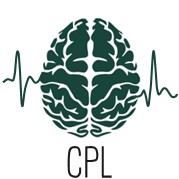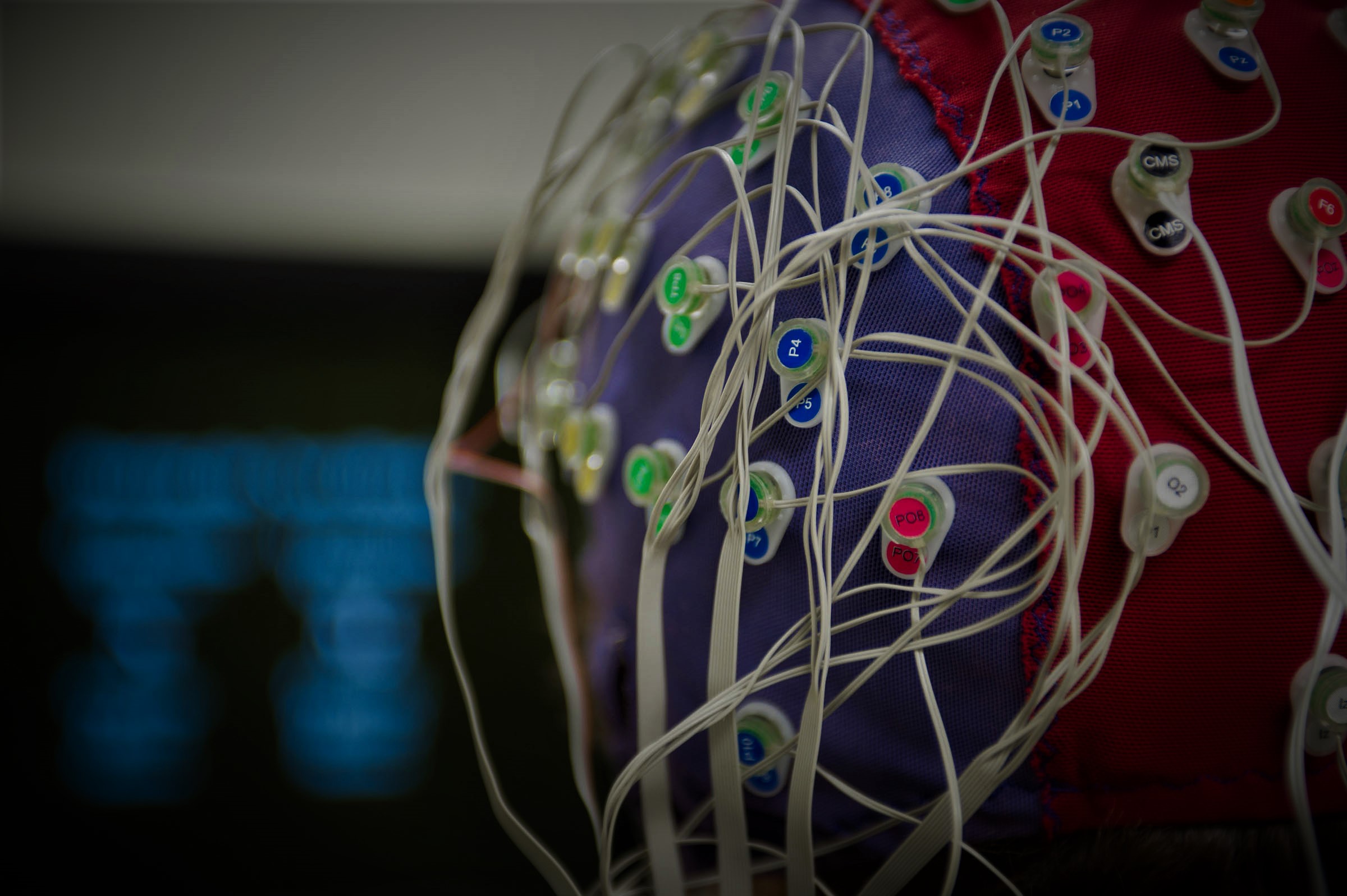Anxiety & Cognitive Control & Error Monitoring
A great deal of research conducted in our lab focused on how anxiety relates to cognitive control/error monitoring.
How do we characterize anxiety?
Our lab typically studies anxiety as existing along a continuum, such that even individuals not meeting criteria for psychological disorders can still experience elevations in anxiety. Typically, we think about anxiety as being divided into two subcategories identified by Heller and colleagues (e.g. Nitschke, Heller, imig, McDonald & Miller, 2001). Worry, or “anxious apprehension”, is a dimension of anxiety characterized by negative, future-oriented thought activity. On the other hand, “anxious arousal” is a dimension of anxiety typically associated with the physiological sensations of fear.
What is cognitive control and error monitoring?
Error-monitoring refers to the process of recognizing when errors occur and adjusting performance to prevent future errors. Related to this, cognitive control is the process by which we are able to utilize information and adjust behavior in order to meet current goals. Cognitive control is closely tied to attentional control, working memory and other higher order cognitive functions.
How do we study anxiety and cognitive control/error monitoring?
We typically assess anxiety via questionnaires and interview. Our studies use behavioral tasks on the computer constructed to tap into various aspects of cognitive control, error-monitoring, working memory, attentional control, and inhibition. In addition to examining behavioral task performance (e.g. accuracy), we also employ physiological methods. We often use electroencephalogram (EEG) to measure electrical brain activity during tasks and isolate event-related potentials (ERP), which are changes in voltage that generally occur when an individual makes a response or views stimuli during tasks. There are many different types of ERPs that have been demonstrated in cognitive research to be related to a variety of cognitive processes. Most commonly in our study of anxiety and cognition, our lab focuses our study on ERPs related to error-monitoring. The majority of our work has centered on the error-related negativity (ERN; occurs within 50ms after an error occurs; see Figure 1) There are several theories that contribute to understanding of the ERN, but we think of the ERN as a signal to other brain areas that more cognitive resources are needed to correct performance following an error.
How Do We Think Anxiety Relates to Cognitive Control/Error-Monitoring?
Our work is guided by Attentional Control Theory (ACT), a prominent theory proposed by Eysenck and colleagues to describe how anxiety relates to cognitive deficits (Eysenck et al., 2007). In brief, the theory states that anxiety results in slower, but effective performance when anxiety is high due to worry depleting available working memory resources, resulting in recruitment of resources from alternative sources. In 2013, our lab proposed the Compensatory Monitoring Hypothesis (CMH) primarily in response to a finding replicated by our lab and many others that anxiety is related to a larger ERN amplitude. Building on previous work and ACT, CMH states that the ERN is a measure of compensatory effort in the face of anxiety, such that it reflects an effort to recruit more cognitive resources to make up for those depleted by worry (Moser, Moran, Scroder, Donnellan & Yeung, 2013).
What have been our major findings in past work?
Adult Research: Several studies and a meta-analysis completed by our group indicate that the adult anxiety-ERN relationship found in our lab and others is driven by a relationship between worry and the ERN specifically among females (and not males; Moser, Moran, Schroder & Larson, 2016). Females are more likely to be worriers and suffer from anxiety disorders at higher rates, so this work has stemmed important current work related to women’s mental health in our lab (see current projects below). Our work has also sought to better understand this relationship by examining other ERPs (Schoder, Glazer, Bennett, Moran & Moser, 2017), task parameters (Lin, Moran, Schroder & Moser, 2015) and functional connectivity between areas associated with cognitive control using time-frequency analyses (Moran, Bernat, Avieyente, Schroder & Moser).
Developmental Research: Developmental work in our lab has indicated that the ERN relates to pediatric anxiety in older children, but not in younger children (Lo et al., 2017). Our lab has interpreted these findings as relating to the development of effortful control processes in children (Moser, 2017). Additional work has examined the familial transmission of reward-related ERPs, as well as there relationship to error-related ERPs (Moser, Fisher, Hicks, Zucker & Durbin, 2018).
What are some factors are we investigating that may play a role in the association between anxiety and cognitive control?
- Biological Factors: The lab is currently investigating the role of ovarian hormones in the relationship between anxiety and cognitive-control in females. Ovarian hormones may play both protective and deleterious roles and thus play a dynamic role is this association in females. We are also interested in how other neurotransmitters (e.g. dopamine) may be implicated in this association.
- Social/ Identity-Related Factors: The lab is also currently investigating the role of race in this association. Black people experience increased chronic stress due to racism, and therefore, anxiety’s impact on cognitive control may differ due to increased allostatic load (i.e., wear and tear on the body due to chronic stressors).
What are some of our current projects related to anxiety and cognitive control/ error-monitoring?
- An NIMH-funded study investigating the role of ovarian hormones in the relationship between anxiety and cognitive control through longitudinal tracking of females across the menstrual cycle. We hope the current study will illuminate how hormones contribute to the way in which anxiety affects error processing in women.
- An NIDA-funded study in collaboration with Dr. Emily Durbin at MSU examining how associations between anxiety and error processing change across development, are transmitted across generations, and relate to other processes (e.g. fear reactivity, reward processing).

